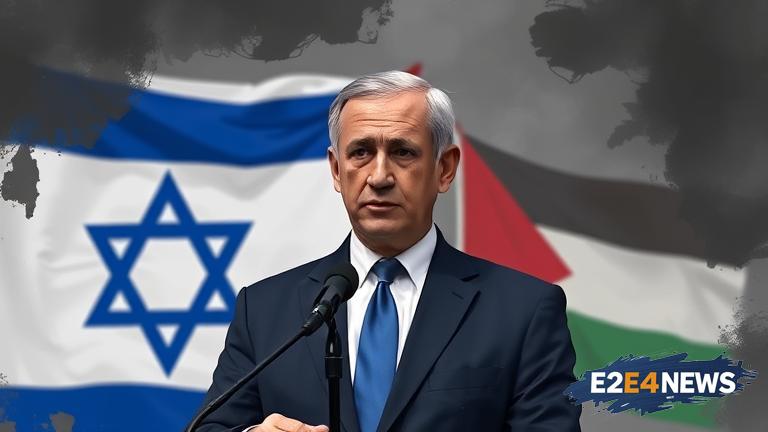The recent escalation of violence in the Middle East has led to a significant increase in tensions between Israel and Palestine. Israel’s Prime Minister has vowed to expand military operations in Gaza, with the goal of occupying the entire region. This move has been met with widespread criticism and concern from the international community. The Prime Minister’s announcement comes after a series of violent clashes between Israeli forces and Palestinian militants. The situation in Gaza has been deteriorating for months, with both sides suffering heavy losses. The Israeli military has been conducting airstrikes and ground operations in Gaza, resulting in the deaths of hundreds of Palestinians. The Palestinian militants have also launched rockets into Israeli territory, causing damage and injuries. The international community has been calling for a ceasefire and a return to peace talks, but so far, a lasting resolution has not been reached. The United States has been a key player in the region, providing significant financial and military support to Israel. However, the US has also been criticized for its perceived bias towards Israel, which has hindered efforts to achieve a peaceful resolution. The European Union has also been involved in efforts to broker a peace deal, but so far, progress has been slow. The situation in Gaza is complex and multifaceted, with deep-rooted historical, cultural, and political factors at play. The Israeli-Palestinian conflict has been ongoing for decades, with both sides claiming a right to the land. The conflict has resulted in the displacement of millions of Palestinians, who are currently living in refugee camps in neighboring countries. The humanitarian situation in Gaza is dire, with widespread poverty, unemployment, and lack of access to basic necessities like food, water, and healthcare. The Israeli blockade of Gaza has exacerbated the situation, making it difficult for aid to reach those in need. The international community has been calling for an end to the blockade and for Israel to allow humanitarian aid to reach Gaza. Despite the challenges, there are still many who believe that a peaceful resolution is possible. A two-state solution, which would see the establishment of an independent Palestinian state alongside Israel, is widely seen as the most viable option. However, this would require significant concessions from both sides, including the establishment of borders, the status of Jerusalem, and the right of return for Palestinian refugees. The road to peace will be long and difficult, but it is essential that all parties involved work towards a negotiated settlement. The alternative is a continuation of the cycle of violence, which will only lead to further suffering and instability in the region. The international community must continue to play a role in promoting peace and stability in the Middle East, and must work to address the root causes of the conflict. This includes providing support for humanitarian efforts, promoting economic development, and encouraging dialogue and negotiation between the parties involved. Ultimately, a lasting peace will require a commitment to justice, equality, and human rights for all people in the region.





